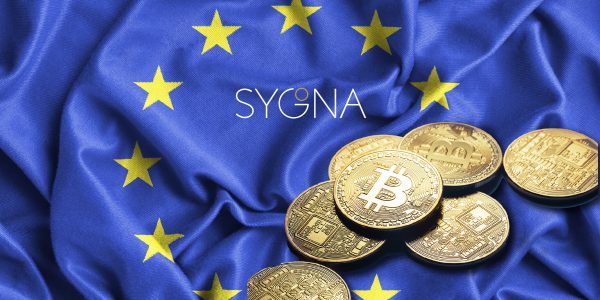The spike in Bitcoin’s price since the Ukraine invasion has caused fears that Russia is using cryptocurrencies to bypass global sanctions. Here’s why this is likely not a real threat and shouldn’t lead to more crypto regulations.
Introduction
With Russia’s invasion of Ukraine entering its second week and heavy casualties mounting, the sanctions imposed by the United States and its allies are already having a massive impact on the Russian economy. Ratings agencies Fitch as well as Moody’s have both downgraded the country’s sovereign debt to “junk” status, J.P. Morgan has predicted a second-quarter contraction of 35% for the Russian economy, while each day the Russian rouble continues its downward spiral into oblivion.
Out of (perhaps excessive) concern by governments for rising energy prices in Europe and to a lesser extent the United States, Russia’s oil and gas industry has so far managed to evade sanctions. However, with the tanks almost bearing down on Kyiv and reports that the Russian army recklessly attacked Europe’s largest nuclear power plant on March 4, pressure to halt the outflows of the nation’s most valuable commodity, which fuels its war machine, are likely to keep mounting.
With the country already kicked out of the SWIFT system, which facilitates international wire transfers, as well as with its overseas-held FOREX reserves held in limbo by the sanctions, some are wondering if Russia will try and be able to use cryptocurrency to climb out of the hole Putin has dug for it.
The answer is an emphatic no, as we will explain below.
Can Russia Evade Sanctions Through Crypto?
Federal Reserve head Jerome Powell this week said that the Ukraine-Russia conflict demonstrated “the need for Congressional action on digital finance including cryptocurrencies” and lamented the fact that there was no regulatory framework yet for this “burgeoning” industry. Senator Elizabeth Warren also warned against the prevalence of crypto in ransomware, quoting a Chainalysis report that alleged Russian-linked entities gathered 75% of ransomware proceeds in 2021.
Pundits like the head of policy at Blockchain Association Jake Chervinsky believe that Russia can’t or won’t use crypto assets to get around sanctions, for a number of reasons as detailed in this Twitter thread.
There are a few reasons why the crypto industry likely offers no safe haven for Russia’s elite First, it’s simply too small to hide funds on the scale that Russia needs. Couple this with inadequate liquidity and with the transparency of the blockchain, sophisticated blockchain analytics and strong crypto regulations, there simply are not enough crypto-to-fiat and fiat-to-crypto on and off-ramps for Russians to use without getting flagged and shut out as well.
While some institutions might turn an occasional blind eye to money laundering, dealing with individuals evading global sanctions is a different story altogether, and parties are bound to be caught out eventually. As the arrests of the 2016 Bitfinex hack suspects recently showed, whatever happens on the blockchain, stays on the blockchain, forever.
For starters, cryptocurrency networks use a distributed ledger, with a fully visible and immutable transaction history available to anyone who cares to look.
Advances in both the technology and regulation surrounding Know-Your-Customer (KYC) checks and Know-Your-Transaction (KYT) have made it even more likely that anyone attempting to move large sums through a virtual asset service provider (VASP) will not be able to hide from a sanctioning body.
Regulations such as the Financial Action Task Force’s (FATF) Crypto Travel Rule further complicate matters for anyone seeking to move even moderate sums of crypto through exchanges without disclosing their identity, as it requires exchanges to share beneficiary and originator user info with counterparties for all transactions over a $1000 threshold.
Additionally, while VASPs such as Coinbase and Binance have so far resisted calls for the freezing of Russian accounts, citing their belief in the rights of ordinary Russians to access financial services, they are still required by law to comply with sanctions against any particular individual or entity placed on the ban lists. Binance CEO Changpeng Zhao (CZ) also said he didn’t believe crypto would help Russians evade sanctions. CZ maintainted that “crypto is too small for Russia’ and that the banking system should be the focal point instead. This sentiment was echoed by other pundits as well.
These sanctions, which forbid US persons and businesses from transacting with anyone banned, apply to all asset classes, including crypto.
Worldwide, countries are now racing to close the net around Russian funds. Singapore this week not only sanctioned 4 Russian banks but closed any crypto loopholes, and others in Asia like Japan, Taiwan, and South Korea are following suit. Singapore will ban financial institutions from dealing with any crypto-related transactions that may enable Russian entities to circumvent the sanctions. French Finance Minister Bruno Le Maire also declared that EU sanctions of Russia will make a specific mention of cryptocurrencies.
Scale of Russian Economy vs Crypto
Russia is no North Korea that can remain under the radar to an extent. With a population of 144 million, it’s not nearly as big as the US and other emerging superpowers, but it’s large enough. While there has been a jump in rouble-to-Bitcoin transactions as well as rouble-denominated purchases of stablecoin Tether (USDT) that roused the Crypto Twitter rabble, the spike is hardly the makings of an entire war economy moving itself underground and by the weekend Bitcoin’s price has once again dropped to below the critical $40,000 peg. It’s true that a few days ago bitcoin flipped the rouble, meaning it has a larger market cap than the money supply (M2) of Russia, but that only tells part of the story.
Russia’s most critical state-run enterprises alone have a market cap of $1.4 trillion, while the entire cryptocurrency ecosystem only has a market cap of $2 trillion. This would indicate that there is no plausible way for the entities that might need to migrate their transactions, such as manufacturers and the energy sector, to be able to do so without drawing immediate attention and subsequent sanctions enforcement.
The thinly traded nature of crypto markets means that there is simply not enough liquidity floating around to really give Russia what it needs, and certainly not without the movements of funds getting flagged.
If Putin Went All In Crypto, We Would Have Already Noticed
As was previously mentioned above, although Bitcoin’s apparent price spike this week had a connection to sanctions on Russia, it was far less demonstrative of an entire national economic shift than it was of ordinary Russians taking action to preserve their savings. Putin and others in his country have been to varying degrees planning for the day overwhelming sanctions might arrive ever since Russia annexed Crimea back in 2014; at that time, they experienced a weaker round of penalties.
In the years since then, had Putin wanted to create an economic escape hatch through crypto, he would have had ample time to build the related infrastructure for such a plan – though there’s no guarantee even then it would have worked. Instead, his diversification away from the US dollar has been more towards the Chinese Yuan as well as increased gold reserves. He’s also made attempts to bring manufacturing home as well as boost his trade in the Asia-Pacific region.
Conclusion
The past week has been a terrifying experience for anyone who pays attention to the news, and the horror has obviously been of an unspeakable character for anyone who has been struggling to get by in war-torn Ukraine, where apartment blocks are being routinely shelled and where masses of people gather in the metro stations to avoid getting turned into the “collateral damage” of a foreign invasion by a totalitarian power. The war has also had significant costs for ordinary Russians, many of whom are fleeing the collapsing scenery of a nation driven into what looks a whole lot like economic suicide committed by a madman.
Given these circumstances, as well as the nature of governments and their distrust of anything they can’t control, such as cryptocurrencies, it’s only natural that we will hear increasingly loud calls for VASPs and other entities in the sector to take some kind of “action” that goes beyond the general sanctions being imposed on Russia.
This would be unwise and could lead to unintended consequences for innovation in the crypto field. While we need to stand with the people of Ukraine and do what we can to rein in an aggressive Russia, it’s crucial that we don’t enact sub-par regulations in a bout of hysteria.
Cryptocurrencies are neutral by nature and at the behest of those that use them for whatever purpose. Crypto has certainly proved its use case as decentralized, censorship-free financial aid to help those in need get immediate access to funds. For example, over $50 million in crypto has been donated directly to the Ukrainian government, and this figure is continuing to go up.


